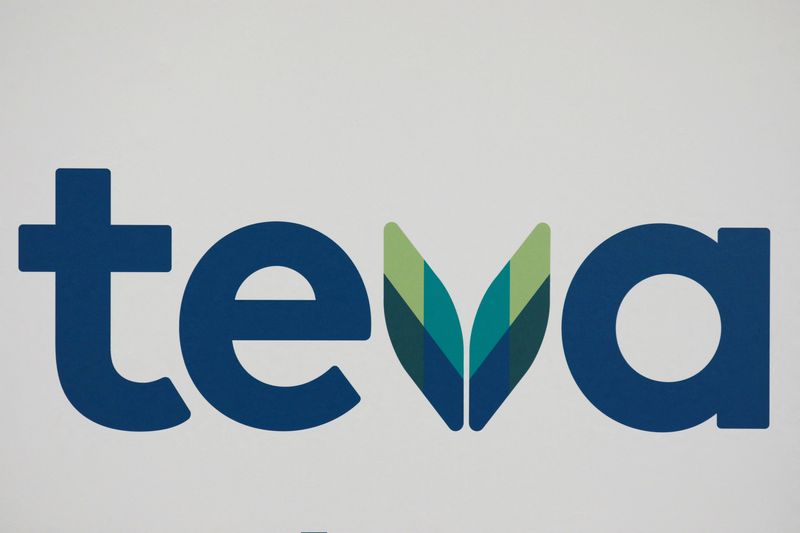By Steven Scheer
JERUSALEM (Reuters) -Teva Pharmaceutical Industries on Wednesday reported higher-than-expected second-quarter profit, boosted by a sharp gain in sales of its Austedo treatment for Huntington's disease that helped send its shares up as much as 14%.
Chief Executive Richard Francis, who took the reins at the start of the year, is betting a trio of the group's branded drugs - Austedo, migraine product Ajovy and the just launched schizophrenia drug Uzedy - will help Teva bounce back from a rough few years.
"I've been pleased. I think there's still work to be done but it's on a journey and it just shows that with focus Austedo could achieve good results," Francis said in an interview.
He added that he hopes the drug could be launched in Europe in 2026.
The world's largest generics drugmaker has struggled over the past five to six years to recover from the loss of exclusivity to its blockbuster multiple sclerosis drug Copaxone, and to cut $35 billion of debt as it also fought a spate of lawsuits alleging it helped fuel the U.S. opioid epidemic.
It expects Austedo sales of around $1.2 billion in 2023, up from $971 million last year, and sees sales reaching $2.5 billion by 2027 since the drug could also help the nearly 800,000 people suffering from tardive dyskenisa, a condition Francis said was under-diagnosed.
"As we remain determined to execute on our growth strategy, we are continuing to focus on our late-stage innovative pipeline delivery and early-stage pipeline development, both organically and through collaborations," Francis said in a statement.
The Israel-based company said the U.S. market for drugs like Uzedy, which launched in May, is about $4 billion. Significant sales are not expected until 2024, the CEO said.
"This year is a setting up year, and next year we will see what it can do," Francis said, adding Uzedy could claim a market share of 10% to 20%. "So, that's a $400 million to $800 million product" and we will "have a better idea at the end of this year."
Francis also said Teva will still pursue launching a biosimilar of AbbVie (NYSE:ABBV)'s blockbuster arthritis drug Humira next year despite a crowded marketplace.
Teva earned 56 cents per share excluding one-time items in the April-June quarter, down from 68 cents per share a year earlier.
Revenue rose 2% to $3.9 billion, with Austedo sales up 51% in North America to $308 million. Ajovy sales rose 16% to $57 million.
Analysts had forecast Teva would earn 53 cents a share on revenue of $3.71 billion, according to Refinitiv data.

Teva revised its 2023 revenue forecast to $15.0 billion to $15.4 billion from $14.8 billion to $15.4 billion, after 2022 revenue of $14.9 billion. It maintained its forecast for adjusted earnings per share of $2.25 to $2.55, versus $2.52 in 2022.
Net debt slipped to $18 billion from $20 billion in the prior year.